You have no items in your shopping cart.
Champagne
Krug
(10 customer reviews)
For 170 years, the heirs to the House of Krug have been creating prestigious cuvées every year, carrying on the work of its founder, Joseph Krug, for six generations. Headquartered in Reims, the champagne house now belongs to the global luxury group LVMH, but has managed to preserve its savoir-faire and continues to offer exceptional champagnes. Find out more
 Recommended by
Recommended byParker Wine Advocate - Bettane et Desseauve avant 2020 - Jancis Robinson
-

Shipped in
secured packaging - -20%
-

Garantie anti-casse :
Prise en charge totale
The winemaker
The story of Joseph Krug, visionary merchant from Moselle
Johann-Joseph was born in 1800 in Mainz, Moselle. At the time, the city was part of the French Empire. Curious by nature, he wanted to conquer the world and, at the age of 24, he left his province, settling in Paris where he became a merchant, at the same time abandoning his first name to keep only Joseph. Already dreaming of joining the world of champagne, he remained in Paris for only a short time, as he managed to join the then highly reputed house of champagne Jacquesson, in Châlons en Champagne. He would devote eight years to this prestigious house, which would be the best school for later realizing his projects.
Joseph Krug meets Hippolyte de Vivès, a Champagne merchant from Reims who is very dynamic and famous in the wine world. They become friends and, together, collaborate in the greatest secrecy on the elaboration of their own blends. In this complicit association, Joseph sees the opportunity to finally realize his dream and become a champagne producer. They thus work for three years at the end of which, in 1843, the house Krug & Compagnie.
"Take care to write everything down and forget nothing."
Joseph Krug was a tireless worker, driven by passion. He records everything in his notebooks: his experiences, his remarks, his conclusions... He will leave his passion and his notebooks to his son, who will enable him to take over the House of Krug with talent and brio. Like his father, Paul is convinced that a good champagne can only be made from good wines, and that each parcel of land must be carefully selected and then carefully tended.
Joseph Krug's legacy will be handed down through six generations. After Paul came Joseph II, Paul II and his sons Henri and Rémi. Today, Olivier Krug, son of Henri, represents the sixth generation. Olivier Krug is determined to perpetuate the know-how of his ancestors. He is a perfectionist, continuing the family doctrine of giving his champagne at least six years' barrel ageing. Krug champagne is best drunk at full maturity, when it expresses all its finesse and elegance.
The exceptional vintages of the Krug champagne house
"Terroir is essential to the composition of a high-end champagne, and it is crucial to build up a repertoire of vins de réserve. Each must come from a single parcel endowed with specific characteristics." This was the precept of Joseph Krug, who built up a vast library of wines over many years. The tradition continues today, ensuring that quality remains constant. Joseph was determined to create an exceptional wine each year, worthy of being a prestige cuvee. Always in his notebooks, he recorded his notes, embellishing them with color codes to assign his wines scores.
For the exceptional champagne, he assigns the label of "cuvée numéro 1", which will become the Krug Grande Cuvée and make the event every year. "In principle, a good House should form only two cuvées of the same quality," wrote Joseph Krug in his notebook. The cuvée millésimée Krug Vintage as envisioned by Joseph Krug, and as it is still made today, reveals the story of a year with a singular character. It is composed of the most expressive wines that could be produced that year.
The late birth of Champagne Krug Rosé
For a long time, Champagne Krug remained white. It wasn't until 1970 that the champagne Krug Rosé saw the light of day. At that time, two brothers, Rémi and Henri Krug, were at the helm of the house. They noticed that the popularity of rosé champagne was growing steadily.
They decided to go along with the trend, but only if they did it their own way and put the Krug stamp on their rosé concept. Thus was born Krug Rosé, made from pinot noir. It is both aromatic and silky, inevitably bold, and offers a delicate bouquet of dried fruit and honey.
Krug champagne cuvées
Krug - La Grande Cuvée
The Grande Cuvée is the spearhead of the Krug house. It accounts for 80% of production and requires up to 50 wines that are selected from 8 vintages. The proportion of grape varieties changes from year to year. The pinot noir is in the majority, at around 50%, while chardonnay oscillates between 35 and 45% and pinot meunier completes the blend, with 10 to 15%.The Krug Millésimé
The Krug millésimé knows no law for its proportions, other than those dictated by the concern to obtain the best quality and preserve the Krug style.Krug Clos du Mesnil
The Krug Clos du Mesnil is a 100% chardonnay, blanc de blancs cuvée. It is made exclusively from the harvest from the Clos du Mesnil parcel, which is located in the commune of Mesnil-sur-Oger. This small production of less than 10,000 bottles represents the Krug family's finest tribute to Chardonnay. Krug Clos du Mesnil first saw the light of day in 1979 and has since been considered one of the house's jewels.The Krug Clos d'Ambonnay
The Krug Clos d'Ambonnay is a 100% pinot noir, blanc de noir cuvée. It's a production that can be described as confidential, at around 1,500 bottles, but one of great value. Clos d'Ambonnay is another find that allows the family to pay tribute this time to their favorite grape variety, pinot noir. Krug Clos d'Ambonnay entered the Krug estate in 1991, a tiny plot of less than a hectare, camouflaged behind walls on the edge of the village of Ambonnay. The champagne produced from it is of an extreme finesse that is the pride of its producers.
14 wines available
between 222.5 € and 3935.99 €
between 222.5 € and 3935.99 €

37 wine's scans
on Twil application
on Twil application

Best rated wines on Twil :
You might like Voir tous les vins de la région
- -26%
- -18%
- -22%

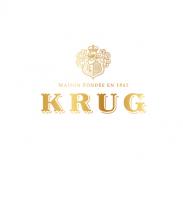
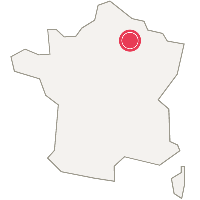
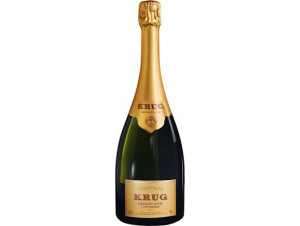





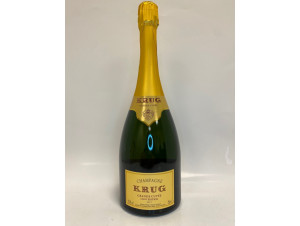





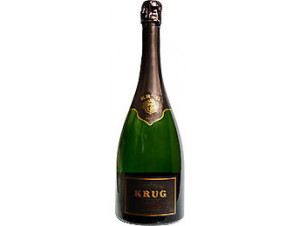













 TWIL - Achat de Vin
TWIL - Achat de Vin


